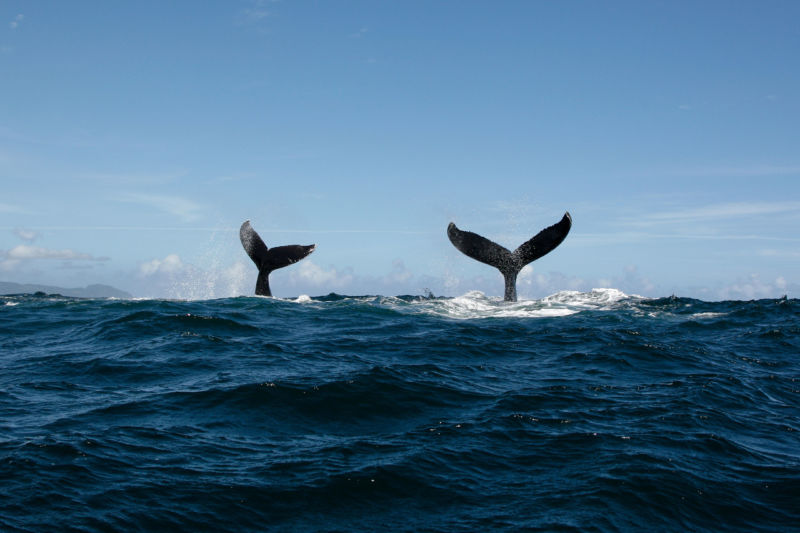
On Wednesday, Japan announced that it was pulling out of the International Whaling Commission (IWC), a step that will allow it to restart commercial whaling in the spring. The move comes after a failed attempt to get the IWC to set legal quotas for legal hunting by its members. For whales, the news is good and bad: the move with shift Japan’s hunting to its territorial waters, and away from the healthier populations in the Antarctic.
The plunge in whale populations in the 1970s ultimately resulted in an international moratorium on the commercial hunting of whales. The IWC allowed some exemptions for subsistence hunting among native populations, and left a loophole for killing whales in the course of scientific research. Japan exploited that loophole, sending large vessels to the Antarctic that killed hundreds of whales annually, with their meat ending up for sale in Japan.
But Australia, which has put whale sanctuaries in place to protect Antarctic populations, took Japan to the International Court of Justice and won a suit over the practice. The International Court determined that there was little to Japan’s claim that its whaling program was for science, as the country had never explored non-lethal alternatives or determined whether the number of whales it killed was appropriate to answer any scientific questions.
Taking their harpoons and going home
After a hiatus, Japan restarted its whaling program, and began pressuring the IWC to set quotas for commercial whaling, something that was supported by Iceland and Norway, and was specified as a goal in the IWC’s charter. But most other countries, noting that some populations of whales were only just beginning to rebound—there are under 500 right whales left in the North Atlantic, for example—rejected this proposal. Japan, suspecting that the IWC might never set quotas, has decided to withdraw from the organization instead.
Japan’s announcement means that it will be free to restart commercial whaling in July. As part of the change, the country will no longer be sending ships to the Antarctic, a move Australian leaders say means these waters “will finally be true sanctuaries for all whales.” (The Australian government has otherwise condemned the move.) Instead, the whaling fleet will focus on Japanese territorial waters and economic zones. The country also says it will set limits on its hunts based on IWC estimates of populations. Currently, however, there’s no indication of how Japan will track the number of kills and whether they’ll report them to the IWC.
While it’s estimated that whaling employs only about 1,000 people in Japan and there’s little demand for its end product, it serves a political purpose similar to that of coal in the US: it allows Japanese leaders to assert their independence from the international community while appealing to those nostalgic for a traditional way of life. The danger in this move is that Japan will be joined by the countries that have supported its past efforts, thus fracturing the organization that is primarily responsible for the survival of many whale species into the 21st century.
https://arstechnica.com/?p=1433135

